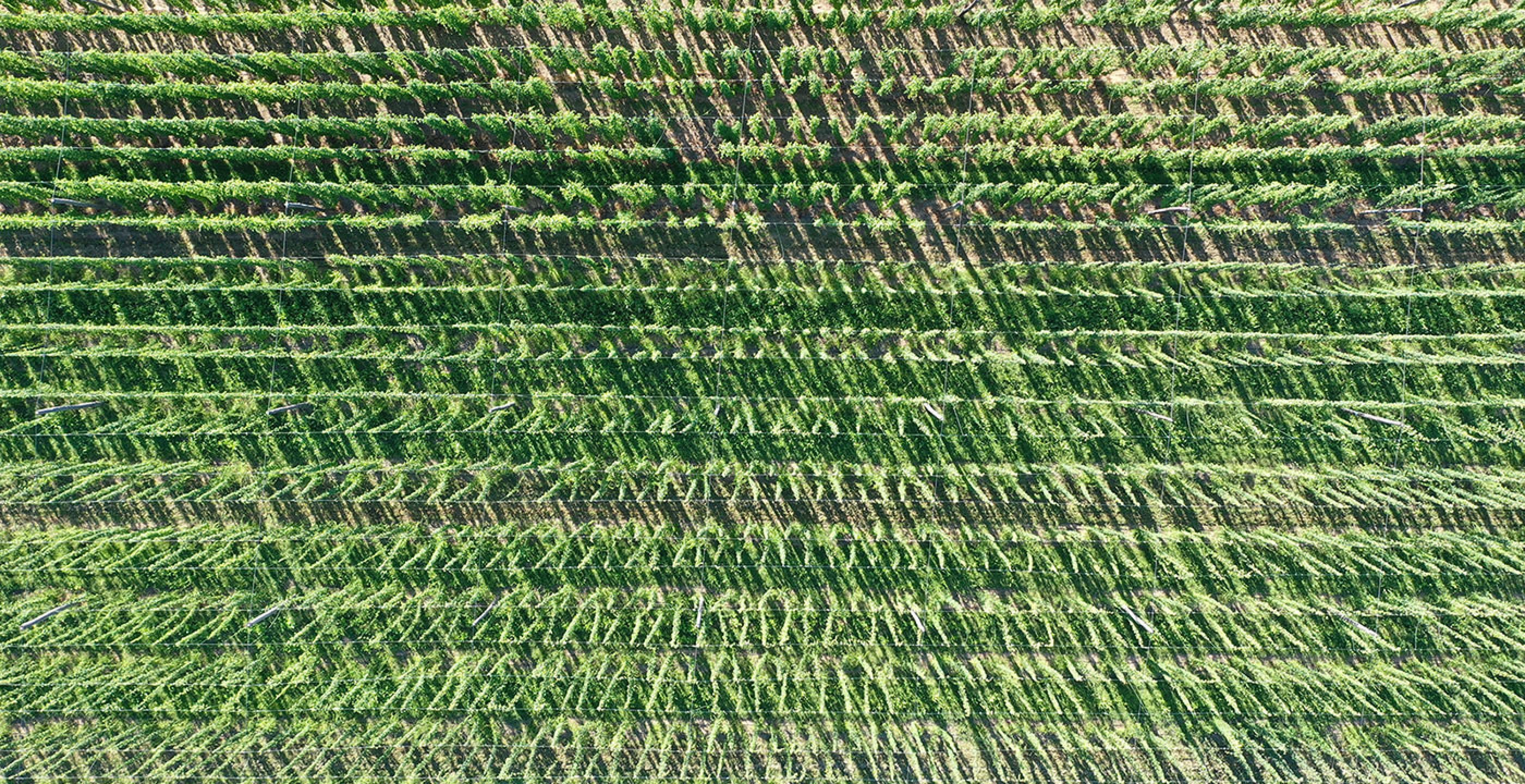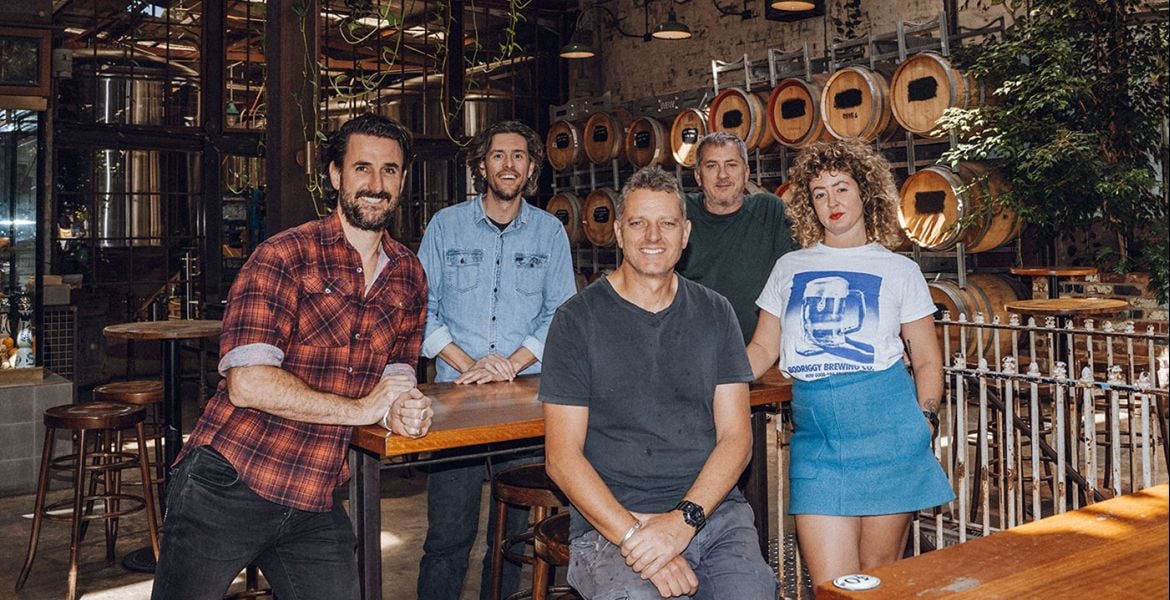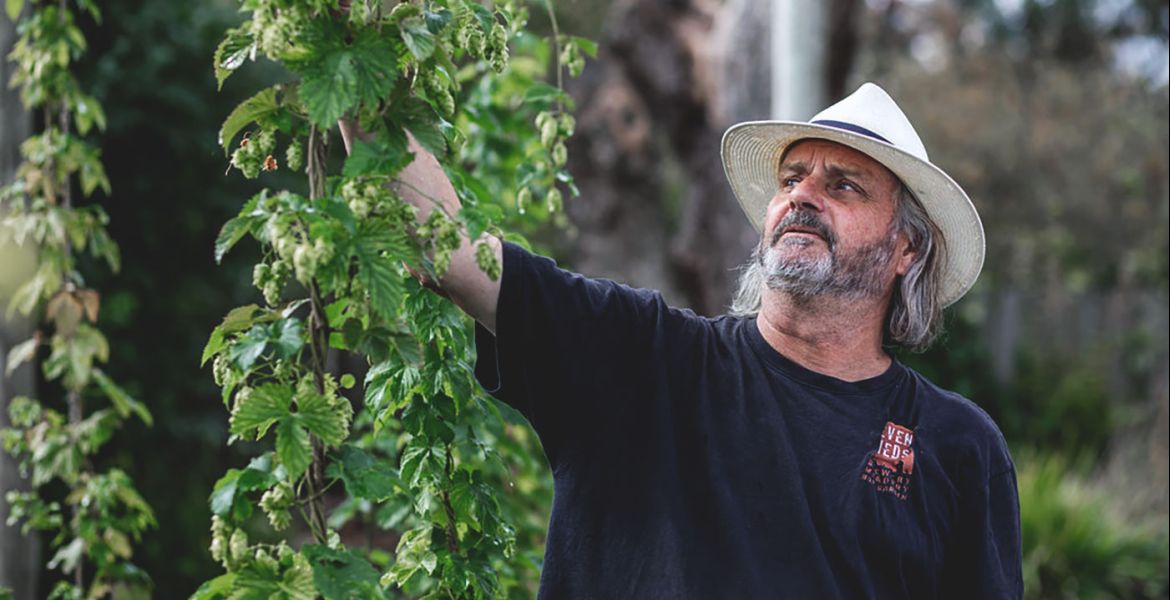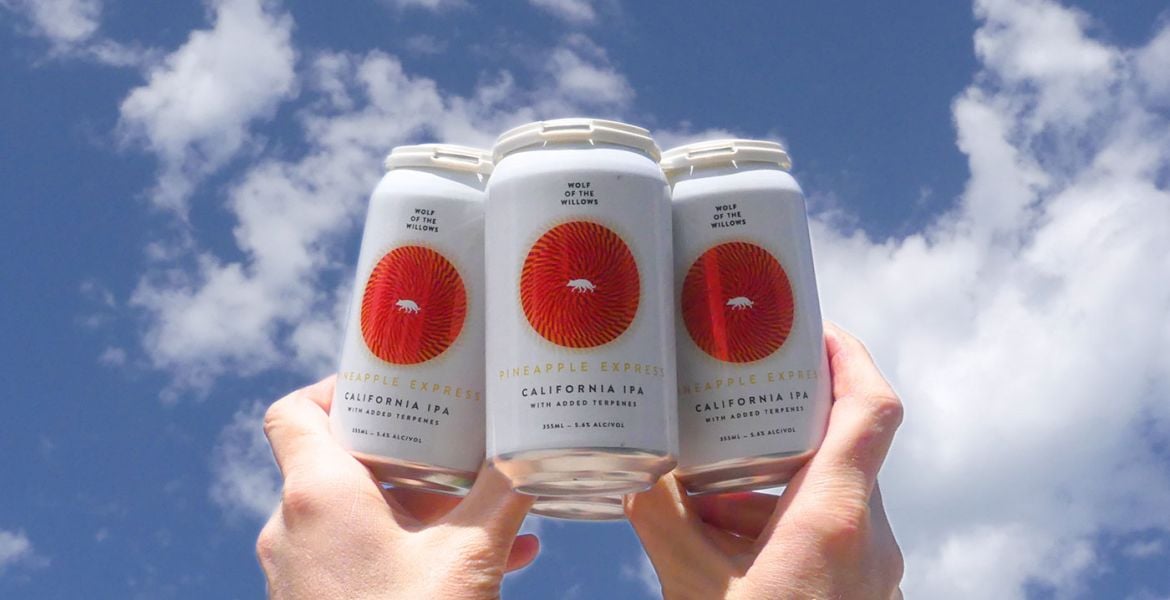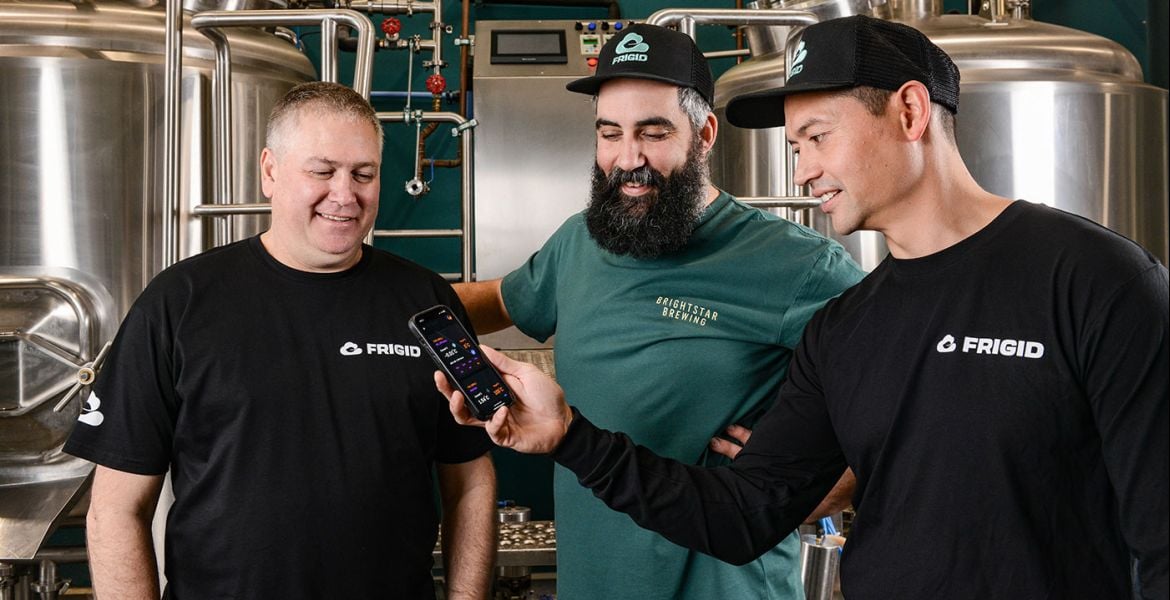To get to Bemboka you must travel on a road that sways through a sea of toiled green hills, passing towns where old school isn’t an aesthetic choice, it’s just how things look. It’s all too fitting that my destination is a revenant of simpler times: an independent, family-run hop farm.
“You got to really rub it into the back of your hand,” Jade McManus, the hop farmer, says as they hand me half a freshly-picked hop cone as we tour the farm. Among the green corridor of towering hop bines, I mash the cone into the back of my hand, increasing in intensity at Jade’s insistence.
“Now smell the back of your hand.”
Jade doesn’t have to tell me twice. The aroma is a privilege to inhale. A floral hop bouquet that seems to tease me with the fact it’s not yet cold and sippable. For this hop I’ve just inhaled isn’t any ordinary hop, it’s a Ryefield hop.
Up and down the Australian east coast, cans of juicy yellow beers proudly display their use of Ryefield Hops alongside their hard-fought awards and independent accreditations. Since their first harvest in 2017, Ryefield have forged strong relationships with many of the country’s smaller brewers, attracting attention courtesy of their unique location, approach, and focus on creating organic produce.
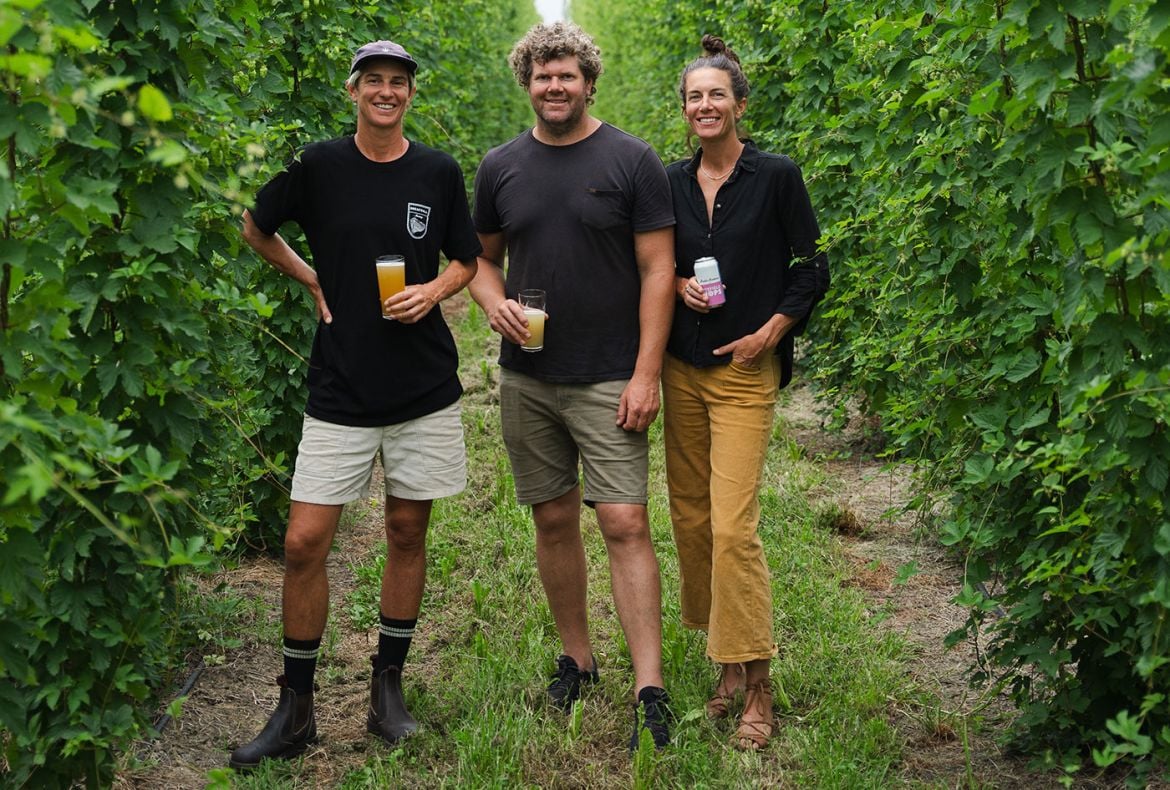
The small team there is one of a number of tiny operations dotted around the country offering an alternative option for small brewers, doing so while following an incredibly simple, honest and environmentally-minded approach to hop growing. It's an approach influenced heavily by Jade’s Environmental Science degree and career as an environmental consultant that sees them in the field every day from planting to harvest.
Jade’s sister, Karen Taylor, manages the admin, bookkeeping and marketing of a product that is increasingly selling itself, while Karen’s husband Morgan, a former boilermaker, manages the hop processing using machinery he either built or assembled himself.
In the grand scheme of things, they remain minuscule in terms of output – even with the expansions and upgrades they’ve completed over the years – yet they very much punch above their weight. And now there’s a whole new reason for brewers to side with Ryefield: they just became Certified Sustainable.
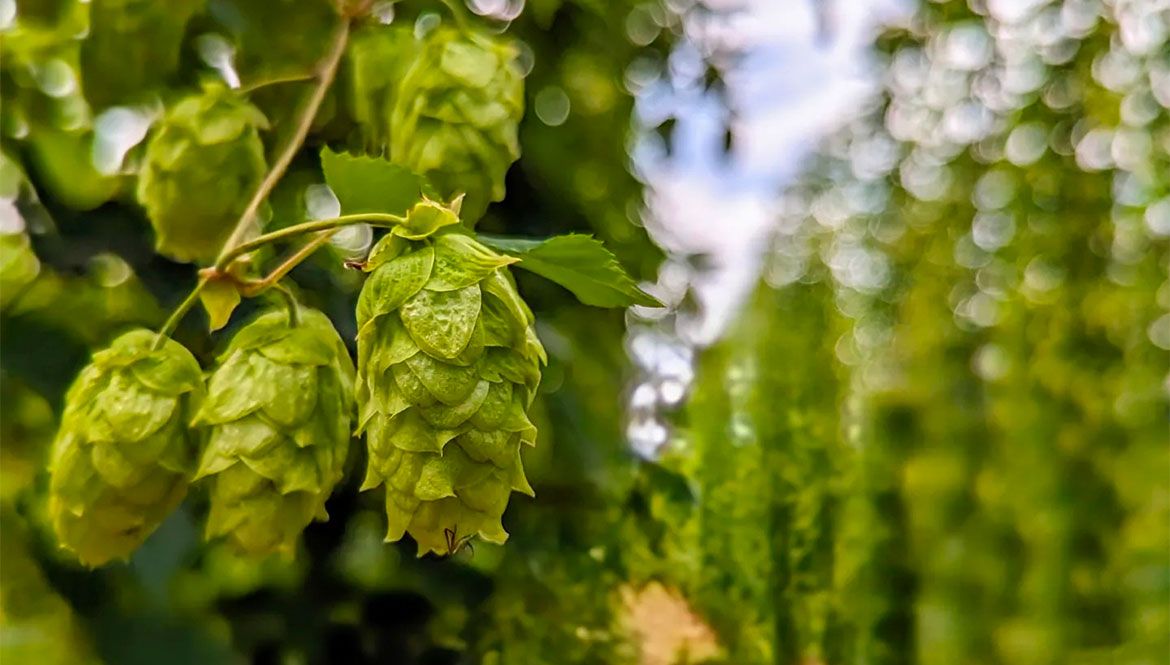
“They have criteria that focuses on environmental practices, which includes farming and social practices,” Jade says of the not-for-profit certification program.
“I really like it because it looks at the whole breadth of sustainability, the triple bottom line approach. [The Certified Sustainable auditors] looks at criteria under environmental management, social practices including community, and your governance including diversity so your actual structure within your company, and how you actually manage and do things.
“We went through that process last year. When you actually go through it, the independent audit is a day, then you have to gather the supporting evidence, such as samples of our fertilisation program, evidence of social engagement, and our nutrition balance program, as well as send off your product for a chemical residue analysis to ensure it has zero chemicals.”
Among community and social initiatives, achieving Certified Sustainable status means Ryefield steer clear of spraying any chemicals on their plants, using zero fungicide, pesticides or insecticides in their farming. Receiving this certification means any customers, partners and suppliers know they grow their hops in an environmentally positive manner.
What their partners might not know, however, is that the team had to make zero changes to receive their certification. Simply, they were already doing all the right things down in Bemboka.
How It Works
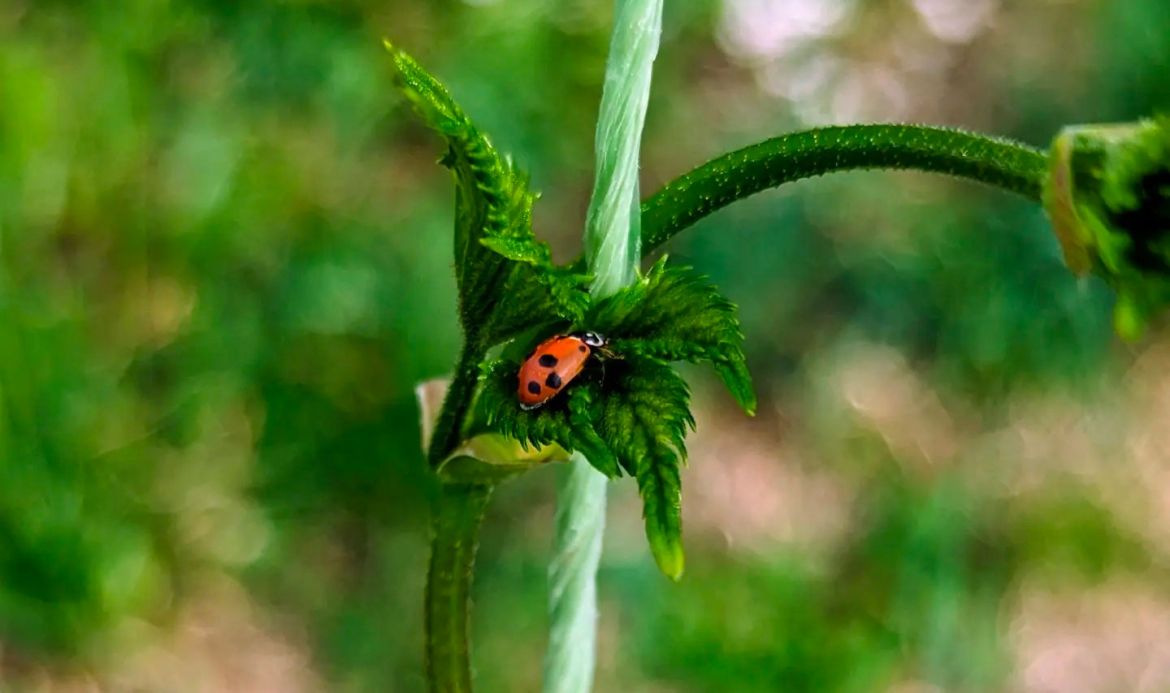
Aphids are a lot like Crafty Pint writers: they love hops. Unlike Crafty writers, however, aphids prefer their hops fresh off the bine. So, how do you minimise aphids eating your cash crop without chemicals? By inviting ladybugs around, that’s how.
“Buying [ladybugs] can be controversial,” Jade says. “We grow beneficial bug habitats where we try to promote the population of beneficial bugs, creating a habitat where they want to stay.”
Sustainable integrated pest management is visible all around the hop farm, the base of the tall bines surrounded by crawling, ground-covering companion plants that form the basis of a luxury hotel for ladybugs, the larvae of which can consume up to 200 aphids a day.
Indeed, nature being gently guided into harmony is all around you at Ryefield Hops. Further up the hill, a worm farm turns waste into a regenerative tea that helps the hops grow big and strong. Local seaweed is mixed into compost, which becomes a rich organic fertiliser. Beneath your feet, two different types of grass grow to provide competition for the weeds. Crawling down the hill are the four-legged guests; a herd of sheep lent to Ryefield Hops to provide natural fertiliser and graze on the lower bines to make them easier to manage during harvest.
“It’s like a brewers’ collaboration,” Jade explains. “We try to collaborate as much as possible, circular economy. We would rather support people that are around us and share resources.
“He ships up 180 sheep, they get well fed and transported back.”
With a patiently-procured palette of earthen remedies combining amid this soothingly fresh air, it’s little wonder the hops come out smelling as rich and vibrant as they do.
“It’s like a healthy diet,” I’m told. “If you’ve got a healthy diet you’ve got better immunity. More natural draw from the atmosphere.
“A really big focus for us is increasing organic matter in the soil. When you increase the carbon in the soil you’re increasing the productivity.”
According to Jade, companion planting, organic fertilisers and putting animals and bugs to work isn’t a “green initiative” but a byproduct of something far more important to the Ryefields team.
Stewards Of The Land
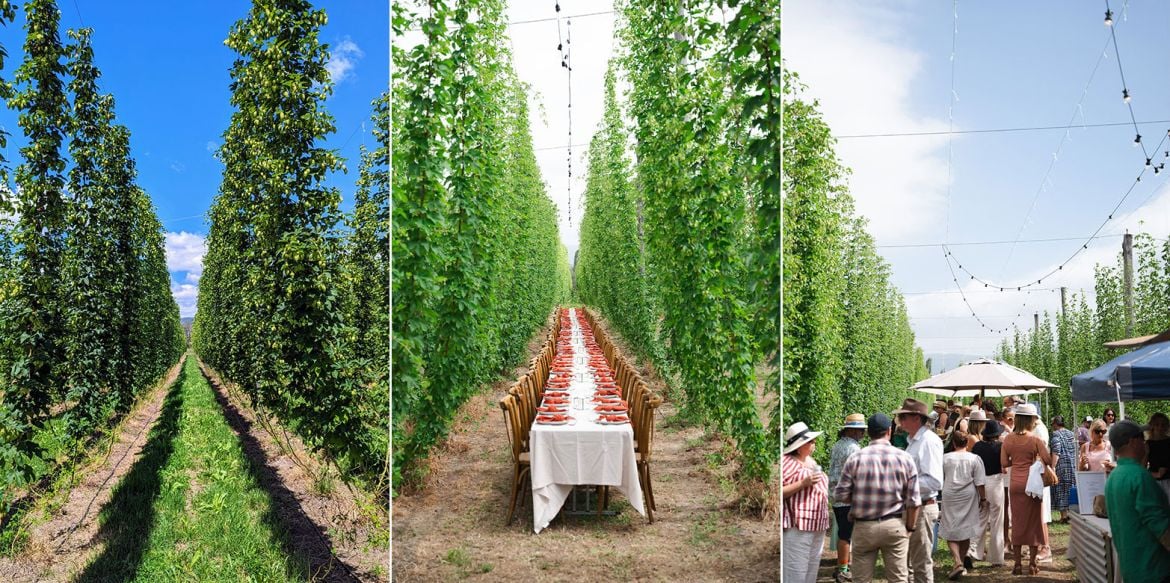
The glorious 12-acre plot is more than just a farm to the Ryefield team. For co-owner Morgan, this is his family’s dairy farm, and a deep family connection is what drives Ryefield Hops’ sustainable approach. It’s not about marketing, it’s about land stewardship.
“When you have stewardship over something, you're caring for it now and bettering it,” Jade says, “creating something that can be going forward with other people without you.”
Working with the land in this way means Jade, Morgan and Karen are playing the long game with the ground beneath their feet. Companion planting and organic fertiliser won’t improve the soil today, but doing so over many years will. Suddenly, it’s not hard to see why the Certified Sustainable auditors made such quick work of this humble hop farm.
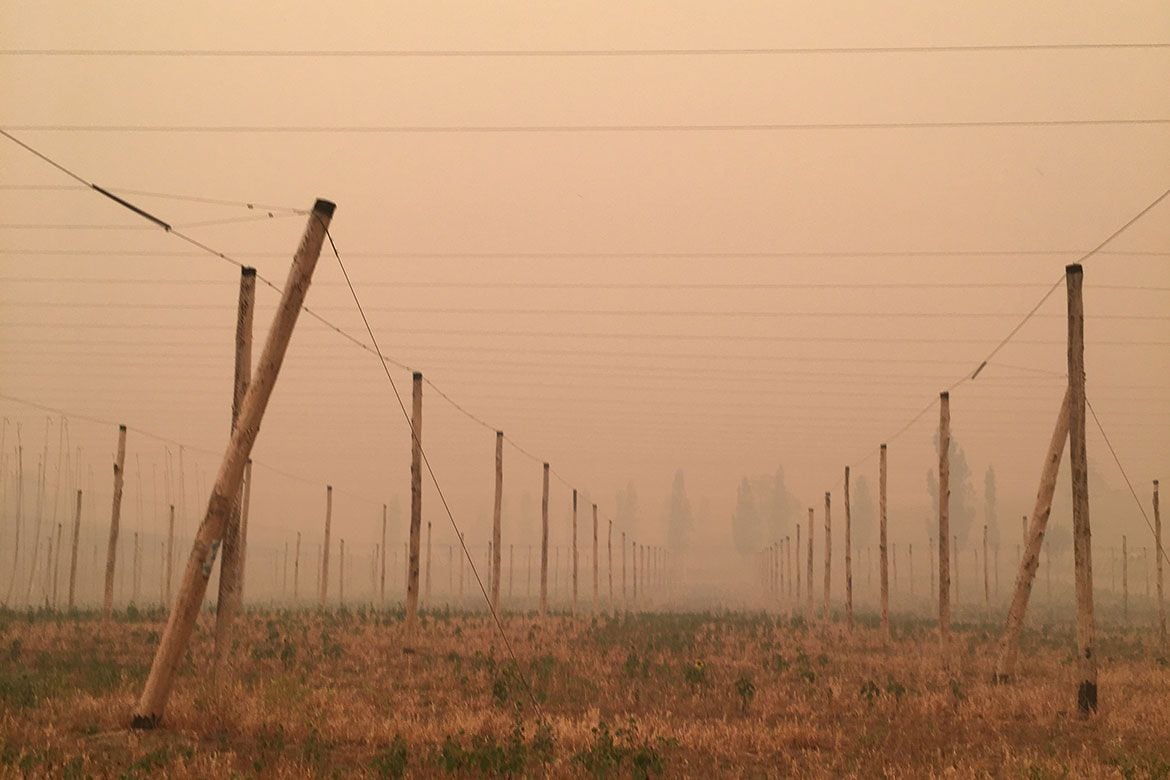
At Ryefield Hops, a bright mass of sunflowers grow tall in their own field and at first I assumed they were for the bees. I was half right.
During the 2019/2020 bushfires (pictured above), the south coast sky was black for months and the hop harvest was completely destroyed. The only crop that seemed to grow for leagues was an emerging yellow, 12-acre field of sunflowers that had hitched a ride in the multispecies mix. Seeing this rare beauty in an ashen world, the Ryefield Hops team invited their neighbours to pick the sunflowers and bask in this last remaining patch of green.
Since then, sunflower picking has become an annual community event with coffee, cheese and, of course, beer available to all visitors. While most companion plants are grown for beneficial bugs, bacteria and healthy hops, the sunflowers are grown simply to put a smile on people’s faces because when the earth is doing better, so are we.
During our stay at Ryefield, we briefly paused during a long table dinner in the bines to sing happy birthday to Morgan and Karen’s son Reuben. If Reuben ends up working the land like his family, he can look forward to a bursting field of healthy hops grown on the land his kin are working to improve for future generations.
That’s not just the dream of a jolly beer writer with hop oils on his hands, either, that’s the analytical results of an independent audit conducted by a body of experts. And you don’t need to travel to Bemboka to learn that – you just need to open a can of beer made with Ryefield’s sustainably-grown hops.



